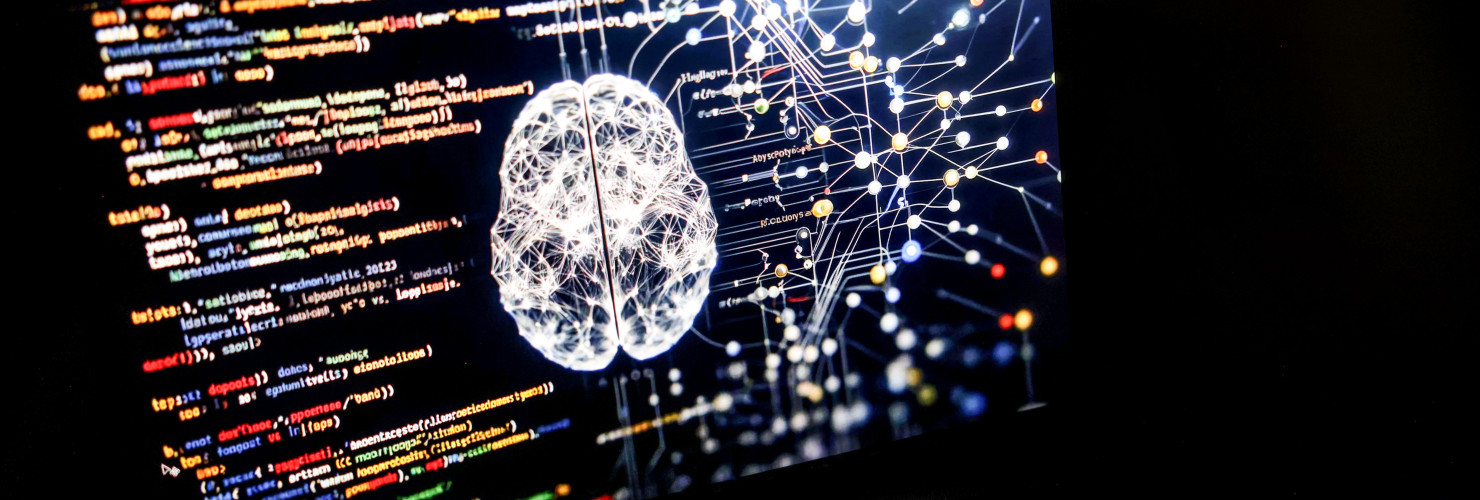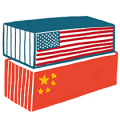

US-China AI competition + Deng Xiaoping's 120th birthday + South China Sea
Top story
US-China AI competition could reshape innovation as we know it
In July, two tech leaders, Sam Altman (OpenAI) and Marc Zuckerberg (Meta), outlined opposing visions for how the United States can secure its artificial intelligence (AI) leadership amid strategic competition with China. Their op-ed exchange showed how closely our global technology future is tied to an increasingly zero-sum China debate in the United States. In the background is a new draft bill, the ENFORCE Act, that would take AI export controls to a new level, controlling not just hardware exports, but also access to the models themselves.
Policymakers in Washington increasingly worry that foreign adversaries like China’s government could exploit powerful machine learning models for dangerous purposes, such as developing weapons of mass destruction or launching cyber-attacks. Congress is now working through the details of the ENFORCE Act, which would allow the Commerce Department to impose export controls on AI models with capabilities that could threaten US national security. So far, US export controls targeting China have focused on the chips needed to train AI. Open-source models would likely be exempted, yet the Biden administration is reportedly thinking through the risks of keeping certain frontier models fully open.
Likely in preparation for more AI restrictions, Altman’s OpenAI in June blocked Chinese developers entirely from using its ChatGPT, following earlier actions against malicious uses of its services by state-affiliated actors. In his op-ed, Altman said that some security restrictions are warranted to ensure the US stays ahead. He envisages a future where a US-led club of democracies keeps control of the most advanced AI capabilities.
OpenAI’s proprietary, closed-source model differs from Meta’s embrace of open-source AI. Unsurprisingly, Zuckerberg’s commentary advocated for “decentralized and open innovation.” He believes China-based actors will exploit US-origin models anyway and sees openness as the main advantage over China. Also: Most homegrown Chinese AI models were built on Meta’s own Llama architecture.
MERICS analysis: “It’s not inconceivable that the geopolitical situation will force some paradigm shift in the governance and use of open-source software for innovation,” says Rebecca Arcesati, Lead Analyst at MERICS. “Clearly, different camps and powerful interest groups within Big Tech will try to use the China card to lobby for their preferred policy outcomes.”
Media coverage and sources:
- The Washington Post: Sam Altman: AI’s future must be democratic
- The New York Times: Mark Zuckerberg Stumps for ‘Open Source’ A.I.
- Foreign Affairs: Enforce Act Bill summary
METRIX
25
This is the number of agreements China and Russia signed in August 2024, ranging from sports and trade to artificial intelligence. Marking the 75th anniversary of the establishment of diplomatic relations, they are the result of ongoing efforts to deepen the two countries’ comprehensive strategic partnership. A series of high-level consultations included a meeting between Chinese Premier Li Qiang and Russian President Vladimir Putin in Moscow in late August. (Sources: Chinese MFA, Russian government website)
Topics
Xi bolsters own legacy in commemorating former leader Deng Xiaoping's 120th birthday
The facts: China commemorated the 120th birthday of former leader Deng Xiaoping on August 22, and President Xi Jinping gave a speech using Deng’s legacy to bolster his own regime. Xi offered his own understanding of Deng’s “reform and opening up,” stating that "deepening reforms of party and state leadership is not about changing the socialist system and weakening party leadership but underscoring the advantages of the socialist system and improving the party's leadership."
What to watch: Xi selectively emphasized the parts of Deng's legacy that fit his own, reinterpreting him to legitimize his own party-centered authoritarianism governance. "The whole party must have a core," he said, referring to his role today as the center of power. Today, Deng remains hugely popular, known for dismantling Maoism and launching China on its path as an international and economic powerhouse. He introduced the concept of “socialism with Chinese characteristics,” opening the door for the private economy and foreign business to spur development. But he never challenged the party’s supremacy and was willing to send in the tanks to suppress demonstrators on Tiananmen Square in 1989. Xi in his speech praised Deng's role in the crackdown, citing his "firmly opposing the chaos, resolutely defending the socialist state power."
MERICS analysis: “Insofar as Deng dismantled Maoism, Xi is reassembling those Maoist building blocks in a way that cements his own role and legacy as the center of power in the party and China as a whole,” says Alexander Davey, Analyst at MERICS. “Xi has reversed Deng’s attempt at separating the powers of party and state and is putting ideology back in the front seat.”
Media coverage and sources:
Beijing continues testing waters in the South China Sea with nonmilitary actors
The facts: China is continuing to test the resolve of the Philippines – and the US – to resist Beijing’s claims over most of the South China Sea. Chinese and Philippine coast guard vessels were involved in collisions on August 19 and 25 as Manila tried to deliver supplies to a coast guard ship in the disputed Sabina Shoal. According to the Philippine government, the latest incident involved Chinese coast guard and navy ships and 31 suspected militia vessels. Sabina Shoal is near the Second Thomas Shoal, where the two countries clashed over the Philippines re-supplying a long-grounded naval vessel, the BRP Sierra Madre. To defuse that potential flashpoint, China and the Philippines in July agreed weekly Philippine food deliveries without obstruction. Both shoals fall within the Philippines' exclusive economic zone, according to a 2016 ruling by an arbitral tribunal convened under the UN Convention on the Law of the Sea. The U.S. condemned China's actions and reaffirmed that the 1951 U.S.-Philippines Mutual Defense Treaty applies to attacks on all Philippine government vessels, including those of the Coast Guard.
What to watch: The increasing intensity of the confrontations raises the question of whether China will take more assertive actions to escalate tensions in the South China Sea. The Chinese government-affiliated expert Wu Shicun, chairman of the Huayang Ocean Research Center, suggested issuing an ultimatum, demanding the dismantling of a grounded Philippine naval vessel and withdrawal from Sabina Shoal – and enforcement by China’s maritime agencies. Beijing’s strong reaction reflects a broader confrontation with the US – China has been conspicuously tolerant of “island-building” in the South China Sea by Vietnam, which does not have a defense agreement with Washington.
MERICS analysis: "As it has done in the past two decades, China will continue to push the boundaries to establish its dominance in the South China Sea by using non-military forces such as the Coast Guard, fishing vessels, and maritime militia," says MERICS Analyst Claus Soong. "Beijing's non-military expansion is geared towards maintaining its presence in disputed waters and coercing other claimants into acceptance – while as much as possible avoiding a US military response in the South China Sea.”
More on the topic:
- Rising tensions in the South China Sea: risks and implications for Europe, MERICS China Security and Risk Tracker 02/2024
Media coverage and sources:
- U.S. Department of State: Press Statement: U.S. Support for the Philippines in the South China Sea
- South China Morning Post: South China Sea: US condemns ‘aggressive’ Chinese actions, ‘stands with’ the Philippines
- United Daily (CN): 南海對峙怎應對? 陸專家籲向菲律賓下最後通牒:不配合直接處理
- Associated Press: China and the Philippines announce deal aimed at stopping clashes at fiercely disputed shoal
China shows restraint as it responds to EV tariffs with probe into EU dairy exports
The facts: Beijing’s targeting of EU dairy and pork exports will frustrate European producers but shows restraint in China’s response to Europe’s tariffs on Chinse-made electric vehicles (EVs). China has launched an anti-subsidy investigation into EU dairy imports, focusing on 20 subsidy programs, seven of which are part of the EU Common Agricultural Policy and the rest national regimes in Ireland, Austria, Belgium, Italy, Croatia, Finland, Romania and the Czech Republic. The EU has had a positive agricultural trade balance with China for the past ten years, with dairy products alone accounting for 11.5% of shipments, the third most important category after cereals and pork. But dairy exports to China amount to €1.7 billion, less than 1% of total EU exports to China.
What to watch: The ultimate impact of China's investigation on EU dairy imports will depend on its findings, although tariff increases are the most likely outcome. Such tariffs could either raise the price of European dairy products in China or force producers to cut their margins to compensate to avoid being replaced by competitors from the US, Canada, Australia and New Zealand. If European producers are priced out of the Chinese market, the impact of this development will depend on how successful they are in finding alternative markets. China’s investigation, plus an ongoing one into pork imports from the EU, is likely meant to target and galvanize specific member states and the politically powerful agricultural lobby. But even if these interests begin to question the EU’s tariffs on Chinese-made EVs, these are unlikely to be walked back.
MERICS analysis: “EU-China trade relations have changed considerably – only three years ago, the EU and China signed the Agreement on Geographical Indications, which protects products like Italian Asiago, Greek Feta, and Spanish Manchego, each of which could now fall under Chinese tariffs,” says Jacob Gunter, MERICS Lead Analyst. “Nevertheless, the bulk of EU-China trade remains unaffected for now. This shows that China’s response to the EU’s EV tariffs has actually been quite restrained. Beijing obviously feels the need to respond to them – but not so much as to risk escalation with the one major global market that is still overwhelmingly open to Chinese products.”
Media coverage and source:
- The Guardian: China begins anti-subsidy investigation into European dairy imports
- European Commission: Agri-food trade statistical factsheet – EU-China
- China’s Ministry of Commerce: Announcement on the start of an anti-subsidies investigation on relevant dairy imports originating from the EU
- EUR-Lex: Agreement between the European Union and the Government of the People’s Republic of China on cooperation on, and protection of, geographical indications
MERICS CHINA DIGEST
Canada to impose 100% tariff on China electric vehicle imports (BBC)
In addition, the country announced that it will impose a 25 percent duty on Chinese steel and aluminium. Canada, the US and Europe accuse China of subsidizing its EV industry and giving domestic car makers an unfair advantage. (24/08/27)
China slams US for adding firms to export control list, vows action (Reuters)
Washington last week added 42 Chinese firms to its export control list over Russia-related trade issues. China’s Ministry of Commerce responded saying that it would take measures to safeguard the rights of its companies. (24/08/27)
China will limit exports of antimony, a mineral used in products from batteries to weapons (AP)
About a year after China imposed export controls on gallium and germanium, metals critical for chips to PV cells, Beijing now announced curbs on antinomy exports starting September 15. The Commerce Ministry said that the controls serve to safeguard China’s security and interests and fulfil international non-proliferation obligations. (24/08/15)
